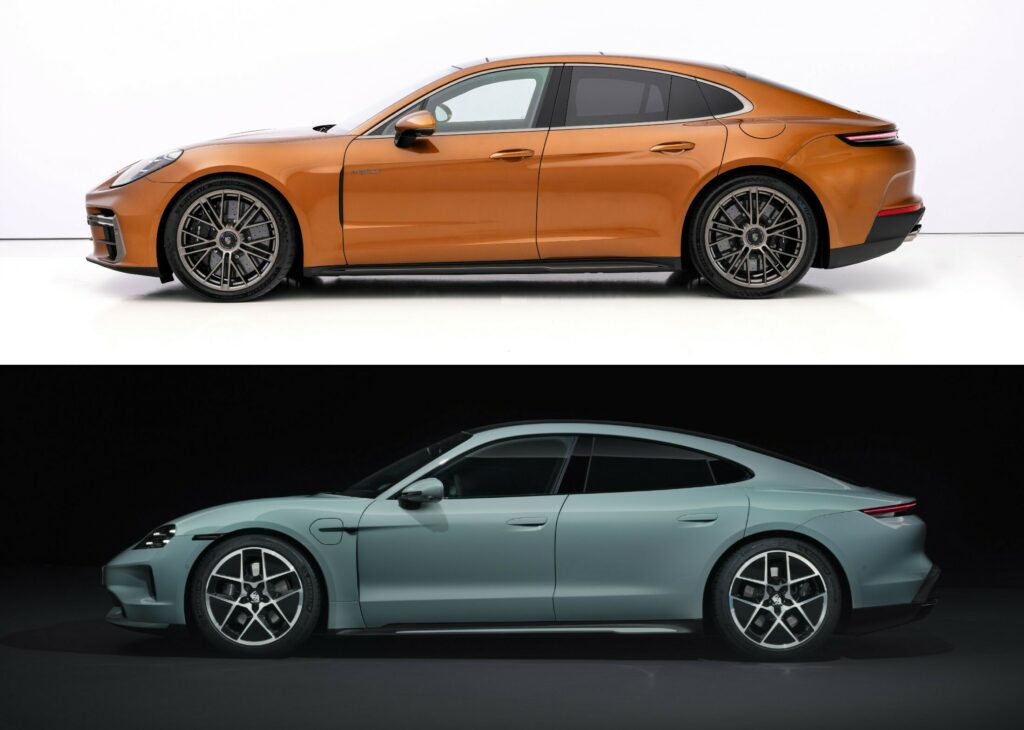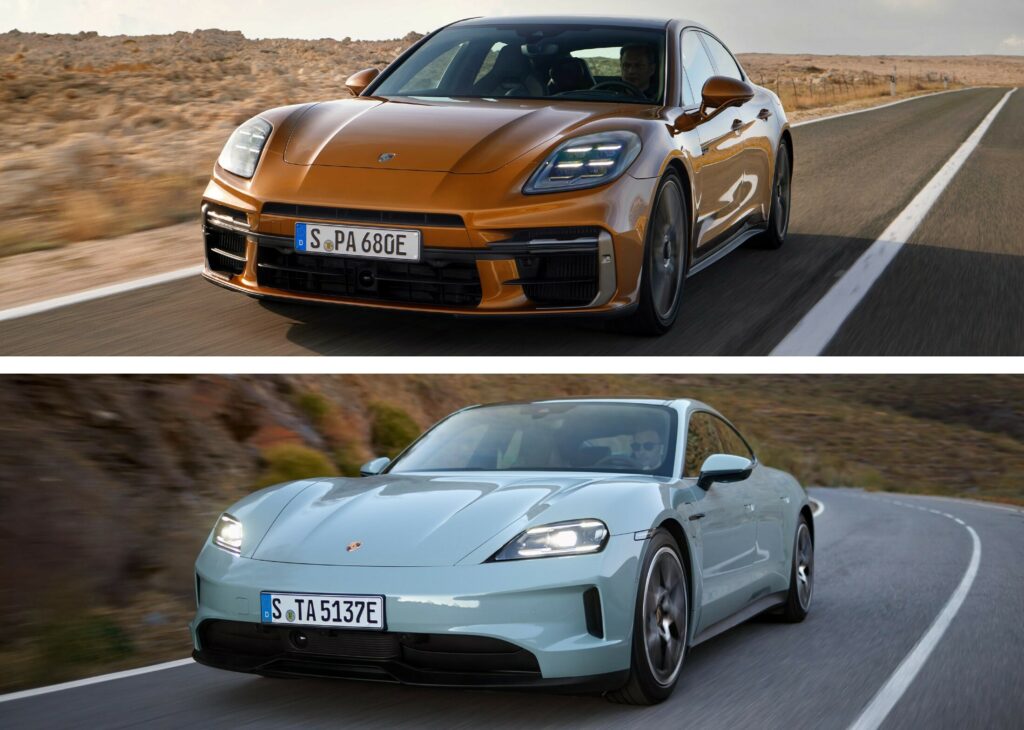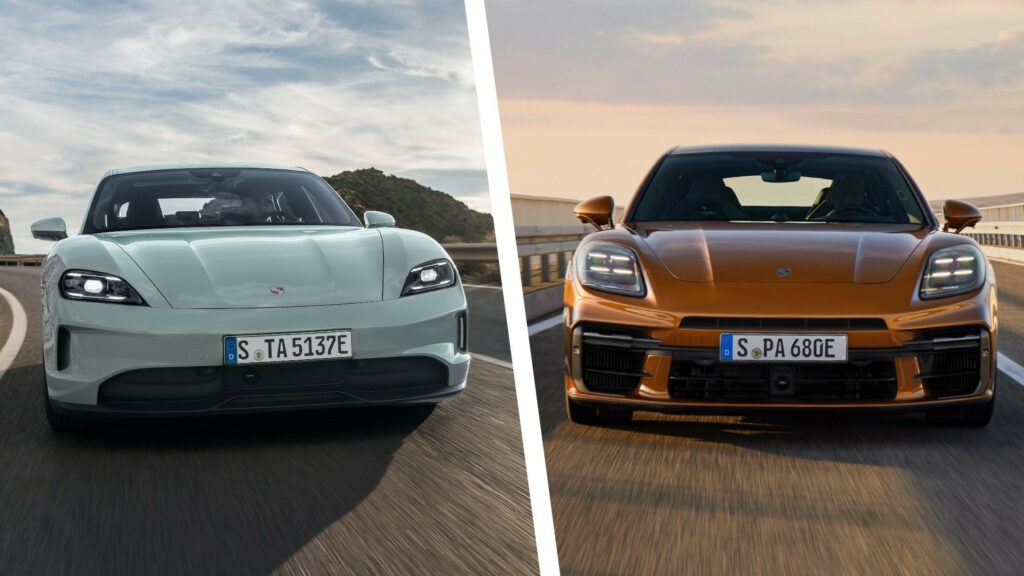Porsche wants to make clear that the Taycan is not the electric equivalent of the Panamera, as both four-door models are planned to coexist in the carmaker’s future lineup.
Measuring 4,963 mm (195.4 inches) long, the Taycan is only 89 mm (3.5 inches) shorter than the Panamera which recently entered its third generation. Similarly, the 2,900 mm (114.2 inches) wheelbase of the EV is only 50 mm (2 inches) shorter than the ICE-powered sedan.
Despite the similar dimensions, the market positioning of the two models is different – the Panamera offers more interior space and luxury while the Taycan is more focused on sportiness and dynamic performance. Porsche wants to keep offering the two models, even when the Panamera eventually adopts a fully electric powertrain. The change could happen when the next-generation Panamera arrives in around 2030 if Porsche keeps the traditional seven-year lifecycle of its predecessors.
Another difference between the two models is that the Taycan is also available in Sport Turismo and Cross Turismo bodystyles, unlike the Panamera which is limited to standard and long-wheelbase sedans, following the demise of the Sport Turismo estate.
More: Hotter Porsche Taycan With Track-Focused Aero Will Debut On March 11

The confirmation about the future of the Panamera and Taycan models in the Porsche lineup was made by Kevin Giek, Vice President of the Taycan Product Line, who spoke to Autocar. Giek said that Porsche sees the Taycan as a “long-lasting” nameplate, similar to the 911. In the same context, he confirmed that the facelifted Taycan won’t be the last of its kind: “We want to keep the Taycan as an innovator, to show what is possible and what is our definition of a BEV sports car. We will continue to improve the car all the time.”
Judging from Porsche‘s typical model lifecycles, the next generation of the Taycan should be expected to debut in 2028 or 2029. The EV was introduced in production form in 2019, before receiving a mid-lifecycle update in 2024.
While Giek didn’t get into details about the next iteration of the Taycan, he hinted at an evolutionary approach in terms of styling, something that is typical of Porsche products. Among the priorities will be to maintain the low-slung silhouette and the sports car characteristics of the existing model. As for the underpinnings, Giek said that the Taycan won’t ride on the PPE architecture that underpins the all-new Macan EV: “The PPE is a perfect SUV platform, but the Taycan is not an SUV”.





